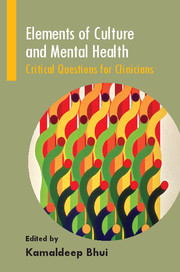Book contents
- Frontmatter
- Contents
- List of contributors
- Foreword: Desire and commitment: essential ingredients in learning about culture and mental illness
- 1 Is trauma-focused therapy helpful for survivors of war and conflict?
- 2 Will ethnopsychopharmacology lead to changes in clinical practice?
- 3 Does cognitive–behavioural therapy work for people with very different cultural orientations and backgrounds?
- 4 Can you do meaningful cognitive–behavioural therapy through an interpreter?
- 5 Are particular psychotherapeutic orientations indicated with specific ethnic minority groups?
- 6 Can psychotherapeutic interventions overcome epistemic difference?
- 7 On the role of culture and difference in evaluation, assessment and diagnosis
- 8 Necessary and sufficient competencies for intercultural work
- 9 On the validity and usefulness of existing Eurocentric diagnostic categories
- 10 Benefits and limitations of the cultural formulation in intercultural work
- 11 Barriers to the intercultural therapeutic relationship and how to overcome them
- 12 How does intercultural interpretation work in the mental health setting?
- 13 Do the power relations inherent in medical systems help or hinder in cross-cultural psychiatry?
- 14 Recovery and well-being: a paradigm for care
- 15 Social perspectives on diagnosis
- 16 Public mental health and inequalities
- 17 Can you do psychotherapy through an interpreter?
- 18 Can race and racism be acknowledged in the transference without it becoming a source of therapeutic impasse?
- 19 Cultural competence: models, measures and movements
- 20 Religion, spirituality and mental health
- Index
14 - Recovery and well-being: a paradigm for care
Published online by Cambridge University Press: 01 January 2018
- Frontmatter
- Contents
- List of contributors
- Foreword: Desire and commitment: essential ingredients in learning about culture and mental illness
- 1 Is trauma-focused therapy helpful for survivors of war and conflict?
- 2 Will ethnopsychopharmacology lead to changes in clinical practice?
- 3 Does cognitive–behavioural therapy work for people with very different cultural orientations and backgrounds?
- 4 Can you do meaningful cognitive–behavioural therapy through an interpreter?
- 5 Are particular psychotherapeutic orientations indicated with specific ethnic minority groups?
- 6 Can psychotherapeutic interventions overcome epistemic difference?
- 7 On the role of culture and difference in evaluation, assessment and diagnosis
- 8 Necessary and sufficient competencies for intercultural work
- 9 On the validity and usefulness of existing Eurocentric diagnostic categories
- 10 Benefits and limitations of the cultural formulation in intercultural work
- 11 Barriers to the intercultural therapeutic relationship and how to overcome them
- 12 How does intercultural interpretation work in the mental health setting?
- 13 Do the power relations inherent in medical systems help or hinder in cross-cultural psychiatry?
- 14 Recovery and well-being: a paradigm for care
- 15 Social perspectives on diagnosis
- 16 Public mental health and inequalities
- 17 Can you do psychotherapy through an interpreter?
- 18 Can race and racism be acknowledged in the transference without it becoming a source of therapeutic impasse?
- 19 Cultural competence: models, measures and movements
- 20 Religion, spirituality and mental health
- Index
Summary
The World Health Organization (2001: p. 3) defines health as ‘a state of complete physical, mental and social well-being’. What is meant to any individual by well-being, mental health and what constitute mental health problems, and to some extent mental illness, is largely determined by the cultural and social circumstances of communities in which the individual in most instances is immersed (Fernando, 2010). In multicultural situations, different interpretations exist side by side, but which ones dominate will be determined by the power relations that exist between the different cultural groups (see Chapter 13, this volume). The closest we can get to studying well-being and mental health as experienced by people in particular cultural/multicultural and social settings is therefore to explore not only the meanings that are given by each constituent community, but also how some meanings are privileged over others and how this can serve to diminish or invalidate others. By the same argument, the meaning of recovery from mental health problems must also be defined within specific cultural/multicultural and social contexts.
The terms well-being and mental health capture different concepts: the former encompasses personal, social and spiritual aspects of life and functioning in society, whereas the latter implies a biomedical understanding of how a person's mind functions. The focus on well-being has grown rapidly in recent years and is justified on the grounds that, in contrast to assessments of mental health by experts, well-being: (a) is based on standards and values chosen by people themselves; (b) reflects success or failure in achieving norms and values that people themselves seek; and (c) includes components dependent on pleasure and the fulfilment of basic human needs, but also includes people's ethical and evaluative judgements of their lives (Diener & Suh, 2000). At a personal level, well-being, sometimes called subjective well-being or happiness (Diener, 1984), is a positive state of mind brought about by satisfaction of personal, relational and collective needs (Prilleltensky et al, 2001). However, there is another approach (the capabilities approach) to well-being, which is more about what people can doas agents and arein terms of lived experience – the emphasis being on their having the capability (i.e. the practical choice) to function (Sen, 2008).
- Type
- Chapter
- Information
- Elements of Culture and Mental HealthCritical Questions for Clinicians, pp. 65 - 68Publisher: Royal College of PsychiatristsPrint publication year: 2013

